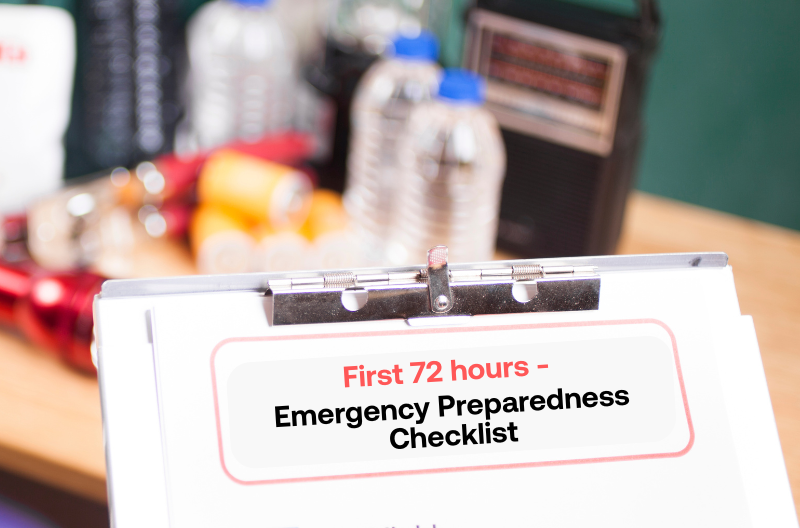Why every business needs insurance
By renae hanvin
Dec 19 2022

No matter the size of your business, insurance is important.
While insurance can be expensive, it’s never worth risking going uninsured; after all, how can your business survive an unexpected accident, natural disaster, fire, theft, or lawsuit?
Luckily, getting insurance can help.
What is business insurance?
Business insurance is designed to protect businesses by covering potential financial losses resulting from unexpected events such as theft or damage.
Why you need business insurance
Most business owners don’t realise that without insurance, their business could be at risk. You should consider it an essential investment because it protects you and your livelihood when something goes wrong.
Researching business insurance can seem like a hassle, so the key to prioritising it is understanding it. It’s easy to get lost in the jargon, the different coverages and different kinds of policies.
But you can cut through the confusion by educating yourself – the Insurance Council of Australia has a portal called ‘Understand Insurance’ to help you make better decisions about your business insurance.
Different types of business insurance
Business insurance can be broken into three basic categories: liability insurance, property insurance and business interruption insurance.
Two forms of insurance are compulsory for most Australian businesses:
- Workers compensation: Protects employees in the event of an accident or sickness.
- Compulsory Third Party: If you operate a vehicle, Compulsory Third Party car insurance covers you for claims made against you for personal injuries arising from the use of your car. This type of insurance is a requirement of registering and operating a vehicle.
Other common types of business insurance include:
- Professional Indemnity: Protects you from legal action taken against you if someone suffers a loss after following your professional advice or as a result of receiving your service.
- Public Liability: Covers your business for legal costs and compensation costs that you might have to pay if you are found liable to someone because you caused death or injury, loss or damage to their property, or economic loss due to your negligence.
- Property: Covers damage or loss to the physical assets of your business, such as inventory, buildings and contents.
- Product Liability: Protect you if damage, injury or death happens to another person or business by the failure of a product you are selling.
- Commercial vehicle: Covers vehicles that your business owns or leases, including cars, truck and vans.
- Business Interruption Insurance: Covers loss or damage from a weather event, flood, fire or other insured interruptions.
Not all businesses need the same type of business insurance
Your insurance needs will vary according to the industry, trade and type of business you are operating.
For instance, Maxine Imrie runs a school bus business WR & MR Imrie Bus Service in Cootamundra.
“Our insurance cover includes business insurance, vehicle insurance, public liability insurance and insurance to cover our property, in particular, the bus depot,” she explains.
How to assess your business insurance needs
So how do you know if you have the right coverage for your business?
Here are some factors to consider when assessing your business insurance needs:
- Type and location of business activities
- Nature of the business
- Size of the business, including the number of employees, premises and business income
- What are the potential risks to your business that are going to have the greatest negative financial impact?
- Products produced and/or sold
- Interaction of the business with third parties
- What dollar amount of coverage do you need? Make sure you don’t under-insure!
We highly recommend talking to a professional insurance broker to help you identify what business insurance options are right for your business.
Maxine says “Our insurance was put in place through a specialist business broker that deals with public transport companies – and in particular, buses. Also, our predominant business is a Transport for New South Wales contract to deliver school bus services in the region. Our insurance broker understands what policies are required by Transport for New South Wales and the specific wording Transport for New South Wales requires within our insurance policies.”
To find a broker, visit www.needabroker.com.au or call NIBA on 1300 53 10 73.
How to find an insurer
Once you’ve decided what type/s of insurance and how much cover you need, the Insurance Council of Australia has a simple tool to help you find an insurer.
Your insurance broker may also be able to refer you to specific insurers.
Make sure you regularly review your business insurance
It’s good practice to review your policy once a year to make sure you are still adequately covered for your business.
Maxine says “We review our insurance every year. And that is to make sure that we’re comfortable within ourselves on what things are being insured for and the replacement value of things. While it’s great to use a specialist broker for our industry, ultimately we are responsible should the worst happen.”
Maxine has a final piece of advice: “I understand that trying to trawl through all of the documents is really hard and it’s laborious.
But at the end of the day, if you don’t do it, you can lose everything that you’ve worked for.
“So take half an hour to have a look through the documents and if you don’t understand what it means, highlight it, go back to the broker, or ask your solicitor. We hear too many horror stories of people being under-insured or assuming that something was covered and then it’s not.”



